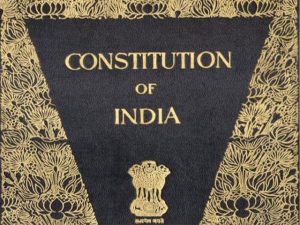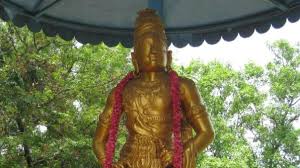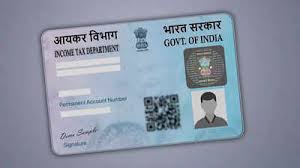Today’s Current Affairs: 27th November 2024 for UPSC IAS exams, State PSC exams, SSC CGL, State SSC, RRB, Railways, Banking Exam & IBPS, etc
Table of Contents
Places Of Worship (Special Provisions) Act, 1991:

The recent riots in Sambhal in Uttar Pradesh once again question whether the Places of Worship Act, 1991, passed to prevent exactly such communal conflagrations, is as good as dead.
- It is described as “An Act to prohibit conversion of any place of worship and to provide for the maintenance of the religious character of any place of worship as it existed on the 15th day of August 1947, and for matters connected therewith or incidental thereto.”
- No person can convert any place of worship of any religious denomination or any section thereof into a place of worship of a different section of the same religious denomination or of a different religious denomination.
- It also prohibits court intervention in problems concerning the religious nature of such places.
- The disputed site at Ayodhya was exempted from the Act. Due to this exemption, the trial in the Ayodhya case proceeded even after the enforcement of this law.
- Any place of worship which is an ancient and historical monument, or an archaeological site covered by the Ancient Monuments and Archaeological Sites and Remains Act, 1958.
- A suit that has been finally settled or disposed of.
- Any dispute that has been settled by the parties or conversion of any place that took place by acquiescence before the Act commenced.
International Pathogen Surveillance Network:

The International Pathogen Surveillance Network recently announced the first round of grants towards understanding disease threats.
- It is a public health network to prevent and detect infectious disease threats before they become epidemics or pandemics.
- The IPSN, with a Secretariat hosted by the World Health Organization (WHO) Hub for Pandemic and Epidemic Intelligence, brings together experts worldwide at the cutting-edge of genomics and data analytics, from governments, philanthropic foundations, multilateral organizations, civil society, academia and the private sector.
- All share a common goal: to detect and respond to disease threats before they become epidemics and pandemics, and to optimize routine disease surveillance.
- IPSN will rely on insights generated from pathogen genomics, which helps analyze the genetic material of viruses, bacteria, and other disease-causing microorganisms to determine how they spread and how infectious or deadly they may be.
- Using these data, researchers can identify and track diseases to improve outbreak prevention, response, and treatments.
- Members will work together in dedicated groups focusing on specific challenges, supported by funding through the IPSN to scale up ideas and projects in pathogen genomics.
- By strengthening the pathogen genomic surveillance ecosystem, the IPSN enables faster detection of new pathogens and enhanced tracking of the spread and evolution of diseases.
75th Constitution Day of India:

The President will begin the celebrations marking 75 years of the adoption of India’s Constitution, with a joint address to both Houses of the Parliament.
- It is also known as Samvidhan Divas and is celebrated every year on November 26 to commemorate the day the Constitution of India was adopted in 1949.
- Drafted under Dr. B.R. Ambedkar’s leadership, the Constitution aimed to ensure justice, liberty, equality, and fraternity for all Indian citizens.
- It finally came into effect on January 26, 1950, when India became a republic.
- In 2015, under the Ministry of Social Justice and Empowerment, the government designated November 26 as Constitution Day to promote constitutional values and coincide with Ambedkar’s 125th birth anniversary.
- Before this, the day was celebrated as Law Day.
Gelephu Mindfulness City:

Pitching the upcoming Gelephu Mindfulness City as the biggest “co-operative project” in Bhutan, the Bhutanese Prime Minister recently said that he was grateful for India’s support on the 2,500 sq.km. “Zero Carbon” city being developed.
- It is an innovative urban development project that integrates economic growth with mindfulness, holistic living and sustainability.
- The GMC project has been envisioned by the King of Bhutan, Jigme Khesar Namgyel Wangchuck.
- It is located in the south-central part of Bhutan and covers over 2500 square kilometers (bigger than Singapore).
- It is a first-of-its-kind Special Administrative Region (SAR) in Bhutan.
- The city will be built around a series of inhabitable bridges.
- It is expected to be a low-rise city which will have its own university and health care facilities for both western and traditional medicine.
- The planned city will have eleven “ribbonlike neighborhoods” that incorporate the area’s 35 rivers and streams.
Neighborhoods will be designed like mandalas, with repeated patterns organized around a central public space. - The city will have its own international airport.
- It will also have several markets and spiritual centres.
- To protect against flooding, paddy fields will be built along the rivers, “forming urban terraces that cascade down from the hills to the valley,”.
- It will have its own government and have the independence to have its own lawmaking, as well as an independent judiciary.
- It will have two protected areas – a national park and a wildlife sanctuary.
Raja Raja Chola I : Birth Anniversary

The birth anniversary of the legendary Chola emperor Raja Raja Chola I is celebrated every year during the Sadhaya Vizha in Thanjavur of Tamil Nadu.
- Raja Raja Chola I was born as Arulmozhi Varman in 947 CE, he rose to become one of history’s most illustrious and visionary rulers.
- He was revered as Raja Raja the Great, he inherited the legacy of his ancestors and crafted an empire that flourished both militarily and culturally.
- His reign, from 985 to 1014 CE, was marked by military prowess and profound administrative vision.
- During his reign, the Cholas expanded beyond South India with their domains stretching from Sri Lanka in the south to Kalinga in the north.
- He also launched several naval campaigns that resulted in the capture of the Malabar Coast as well as the Maldives and Sri Lanka.
One Nation One Subscription Scheme:

The Union cabinet has approved the One Nation One Subscription scheme.
- It is a new Central Sector Scheme for providing country-wide access to scholarly research articles and journal publication.
- The scheme will be administered through a simple, user friendly and fully digital process.
- This will be a “One Nation One Subscription” facility for the government higher education institutions and R&D laboratories of the Central G
- This will supplement the Anusandhan National Research Foundation (ANRF) initiative to promote research and development and foster a culture of research and innovation throughout government universities, colleges, research institutions, and R&D laboratories.
- The benefits of One Nation One Subscription scheme will be provided to all Higher Educational Institutions under the management of the Central or State Government and Research & Development Institutions of the Central Government, through a national subscription coordinated by a central agency, namely the Information and Library Network (INFLIBNET), an autonomous inter-university centre of the University Grants Commission (UGC).
- The Department of Higher Education will have a unified portal “One Nation One Subscription” through which the institutions will be able to access the journals.
- The ANRF will periodically review the usage of One Nation One Subscription and publications of Indian authors of these institutions.
- A total of about Rs.6,000 crore has been allocated for One Nation One Subscription for 3 calendar years, 2025, 2026 and 2027 as a new Central Sector Scheme.
PAN 2.0 Project:

The Cabinet Committee on Economic Affairs (CCEA), chaired by the Prime Minister has given its approval for the PAN 2.0 Project.
- It is an e-Governance project for re-engineering the business processes of taxpayer registration services through technology driven transformation of PAN/TAN services for enhanced digital experience of the taxpayers.
- This will be an upgrade of the current PAN/TAN 1.0 eco-system consolidating the core and non-core PAN/TAN activities as well as PAN validation service.
- It is a project of the Income Tax Department.
- The PAN 2.0 Project enables technology driven transformation of Taxpayer registration services and has significant benefits including:
- Ease of access and speedy service delivery with improved quality;
- Single Source of Truth and data consistency
- Eco-friendly processes and cost optimization; and
- Security and optimization of infrastructure for greater agility.
- The PAN 2.0 Project resonates with the vision of the Government enshrined in Digital India by enabling the use of PAN as Common Identifier for all digital systems of specified government agencies.
National Mission on Natural Farming: Approved

The Union Cabinet chaired by the Prime Minister of India approved the launching of the National Mission on Natural Farming (NMNF).
- It is a Centrally Sponsored Scheme under the Ministry of Agriculture & Farmers’ Welfare.
- It has been launched to promote natural farming in mission mode across the country as a standalone scheme.
- It aims at promoting natural farming practices for providing safe & nutritious food for all.
- It is designed to support farmers to reduce input cost of cultivation and dependency to externally purchased inputs.
- In the next two years, NMNF will be implemented in 15,000 clusters in Gram Panchayats, which are willing, & reach 1 crore farmers and initiate Natural Farming (NF) in 7.5 lakh Ha area.
- Preference will be given to areas having prevalence of practising natural farming farmers, SRLM / PACS / FPOs, etc.
- Further, need-based 10,000 Bio-input Resource Centres (BRCs) will be set-up to provide easy availability and accessibility to ready-to-use natural farming inputs for farmers.
- Under NMNF, around 2000 NF Model Demonstration Farms shall be established at Krishi Vigyan Kendras (KVKs), Agricultural Universities (AUs) and farmers’ fields, and shall be supported by experienced and trained Farmer Master Trainers.
- The willing farmers will be trained in Model Demonstration Farms on the natural farming package of practices, preparation of natural farming inputs, etc. near their villages in KVKs, Agricultural Universities and practising natural farming farmers’ fields.
- 75 lakh trained willing farmers will prepare inputs like Jeevamrit, Beejamrit, etc. by using their livestock or procure from BRCs. 30,000 Krishi Sakhis/ CRPs will be deployed for awareness generation, mobilisation and handholding of willing farmers in the clusters.
- Farmers will be provided with an easy simple certification system and dedicated common branding to provide access to market their natural farming produce. Real time geo-tagged & referenced monitoring of NMNF implementation shall be done through an online portal.
- Convergence with existing schemes and support structures of Government of India/ State Governments/ National & International Organisations shall be explored for enhancing local livestock population, development of NF Model Demonstration Farms at Central Cattle Breeding Farms/ Regional Fodder Stations, provide market linkages at district/ block/ GP levels through convergence for local farmers’ markets, APMC (Agricultural Produce Market Committee) Mandis, Haats, Depots, etc.
- Additionally, students will be engaged in NMNF through the RAWE program and dedicated Undergraduate, Postgraduate & Diploma courses on NF.
- The scheme has a total outlay of Rs.2481 crore (Government of India share – Rs.1584 crore; State share – Rs.897 crore) till the 15th Finance Commission (2025-26).
Operation Tamarisk The Cold War’s Secret Garbage War:
Operation Tamarisk was a covert intelligence operation that took place during the Cold War, a period marked by fierce rivalry between the United States and the Soviet Union. In a bid to gain any advantage, intelligence agents resorted to unconventional means to gather information. One of the most unusual and gritty operations was the collection and analysis of discarded waste left behind by Soviet troops in East Germany.
16th Anniversary of 26/11 Attacks:
On 26th November 2008, Lashkar-e-Taiba, a Pakistan-based terror group, carried out attacks at the Taj Mahal Palace Hotel, Nariman House, Oberoi Trident, and Chhatrapati Shivaji Railway Station in Mumbai.The attacks revealed significant vulnerabilities in India’s security infrastructure, prompting urgent reforms in counter-terrorism measures.
Atal Innovation Mission 2.0:
The Union Cabinet has approved the continuation of the Atal Innovation Mission (AIM) under NITI Aayog (National Institution for Transforming India) with an enhanced budget of Rs. 2,750 crore, marking the launch of AIM 2.0 to strengthen India’s innovation ecosystem until 2028.AIM 2.0: Building on AIM success, such as Atal Tinkering Labs (ATLs) and Atal Incubation Centers (AICs), AIM 2.0 seeks to scale and pilot new initiatives.
SC Quashes Telangana Land Allotment to Privileged Groups:
The Supreme Court(SC) of India has quashed the Telangana government’s land allotments to cooperative societies comprising Members of Parliament (MPs), Member of the Legislative Assembly(MLA), civil servants, and journalists, deeming it a violation of equality under Article 14 of the Constitution.The SC criticized the land allotment to privileged groups at discounted rates, favoring the already privileged over marginalized communities.
Ophiophagus Kaalinga:
Karnataka’s king cobra species, known locally as ‘Kaalinga Sarpa,’ is officially named Ophiophagus Kaalinga in the scientific community.King cobras were first classified in 1836 as Ophiophagus hannah by Danish naturalist Theodore Edward Cantor.
King cobras underwent no genetic studies for 186 years until recently.
CCI Nod to Invest in Flipkart:
The Competition Commission of India (CCI) has granted approval to Alphabet Inc.’s subsidiary, Shoreline International Holdings LLC, to acquire a stake in Walmart-owned Flipkart Pvt Ltd. This follows Flipkart’s May 2024 funding round, where Alphabet’s Google invested $350 million out of a total $1 billion raised. Walmart, which holds an 85% stake in Flipkart, contributed $600 million. Separately, CCI has also approved MUFG Bank Ltd.’s acquisition of an additional stake in Delhi-based digital lender DMI Finance, raising MUFG’s shareholding to 20%.
Coast Guard to Hold ‘SAREX 24’ in Kochi:
The Indian Coast Guard (ICG) is set to conduct the 11th edition of the National Maritime Search and Rescue Exercises & Workshop (SAREX-24) in Kochi from November 27 to 30. The event, organized under the aegis of the National Maritime Search and Rescue (NMSAR) Board, aims to enhance India’s capabilities in maritime search and rescue (SAR) operations through a collaborative approach involving various national and international stakeholders.
India’s First Green Hydrogen Fuelling Station in Leh:
Amara Raja Infra, part of the $2 billion Amara Raja Group, has completed the setup of India’s first green hydrogen fuelling station in Leh, Ladakh, for NTPC Ltd. This innovative project will enable emission-free transport in the region, marking a significant milestone in India’s efforts to embrace green mobility.The station, designed to produce 80 kg of green hydrogen daily, supports NTPC’s green mobility initiatives under the National Hydrogen Energy Mission. Inaugurated by Union Power Minister Manohar Lal, it will also aid in the operation of five hydrogen fuel cell buses in the region.
Essar Group Chairman Shashi Ruia Passes Away:
Shashikant Ruia, co-founder and Chairman of Essar Group, passed away at 81 after a prolonged illness. Known for his visionary leadership, Ruia played a pivotal role in shaping India’s corporate landscape and making Essar a global conglomerate. His journey from a modest family business to establishing a world-class enterprise is a testament to his exceptional acumen, commitment to innovation, and dedication to philanthropy.
NADA Suspends Bajrang Punia for Four Years Over Doping Violation:
National Anti-Doping Agency (NADA) has imposed a four-year suspension on Olympic bronze medallist Bajrang Punia for violating the anti-doping code. The suspension follows his refusal to provide a urine sample for a dope test during selection trials for the national wrestling team on March 10, 2024. This decision, which extends beyond NADA’s initial provisional suspension in April 2024, has barred him from competitive wrestling and coaching opportunities abroad.




